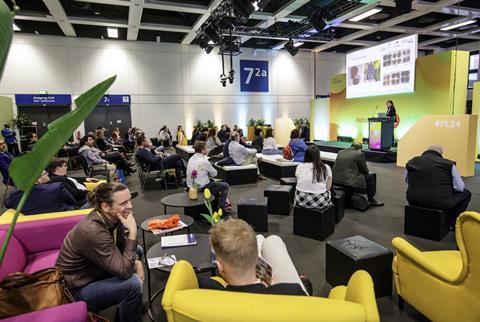On day one in Berlin, Dr Manuela Zude-Sasse spoke to Future Lab visitors about data collection and the development of risk models in the face of extreme weather

The threat of heatwaves, the danger they pose to production and what data can do to help us face up to them was the topic of a presentation on the Future Lab stage at Fruit Logistica.
Dr Manuela Zude-Sasse, scientist at Leibniz Institute for Agricultural Engineering and Bioeconomy (ATB), told gathered visitors that it was never too early to start thinking about heatwaves and implementing risk models to prevent damage to fresh produce, and that new methodologies were helping to do this.
Avoiding heatwaves was not possible, so therefore adapting was key, she said.
She pointed out that excess solar radiation and elevated temperatures resulted in numerous physiological disorders, compromising quality, storability and increasing food waste.
“What should we do in this case?” she asked. “We can take measurements, add netting or micro-sprinklers, canopy irrigation and there are different coating materials under development. There is a lot we can do, but the real question is when should we take these measures?
“What we can do is build risk models that measure the heat coefficient, the wind into the canopy, global radiation, respiration heat and more,” Zude-Sasse explained. ”These are scientifically sound but in the orchard it is difficult to do.”
An alternative approach, she noted, was a big-data one, creating a statistical model that works on the variants in the data and delving into the affect a heatwave has on the orchard.
Zude-Sasse went through some of the methodologies and technologies used to create such a model and generate the necessary data, including sensors, laser scanners and thermo cameras.
The resulting information showed the temperature and spacial distribution of fruit during different periods of heat, she said, generating more data than ever before.
This data allowed the creation of risk models, the assessment of training systems and ultimately meant more accurate predictions of fruit surface temperatures in future.



